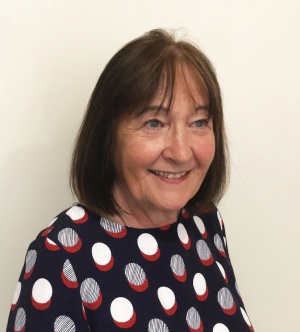I offer a free assessment by phone, giving a no obligation opportunity for you to tell me your concerns and any information that would help me understand your circumstances and needs. I will give information about how we might work together so that you can decide whether you feel comfortable talking with me and the approach is right for you.
Our first session will be an opportunity for you to share your issues and concerns in more detail and explore how events and situations have affected you, and how you might move forward to where you would like to be. More choices open up to you in the process enabling you to choose the direction best for you.
Why do you have supervision?
Supervision provides support for me when working with clients. It gives me an opportunity to explore my relationship with the client, to become more aware of where we are together in the process and make the best of the resources available to us. Clients are presented anonymously and both myself and supervisor abide by the BACP Ethical Framework for Good Practice in Counselling and Psychotherapy and subject to it's complaint procedure (see BACP website). Supervision also provides safety for both client and counsellor and is a condition to registration and practice in counselling.
Have you had therapy?
I had therapy over a two year period prior to beginning my training as a counsellor. During my training I undertook 50+ hours of personal therapy and 2 hours each week in group therapy for the duration of training (6 years). Each of the training courses I have undertaken have required me to present my own issues and concerns during skills sessions and residential weeks. The more I can be aware and understand myself the more I am able to meet and understand others in their experience. I believe this personal journey necessary to learning how to be with myself and others. Post training, I have spent time in India for the past 26yrs learning many ways to self development, in recent years I have taken courses in Ayerveda, spending time with an Ayervedic Doctor learning about the part thinking, beliefs and emotion plays in health, the best way to learn is to look inside, this is an ongoing journey of continual personal development.
How many sessions will I need?
This depends on what is enough for you, some clients return for continual personal development when they feel the need. Many clients find 6 sessions enough, some are happy with one session and others may continue for up to 2 years. I believe it appropriate to continue as long as progress is being made. If the process became static I would be questioning the way I am working and seeking clarification about what we are doing together, are we coming to an end or just stuck and needing to review and re-contract. A client may withdraw from the contract at anytime, however, it is useful to have a session to end, giving an opportunity to gather loose ends and say goodbye feeling a sense of completion.
What are the common benefits clients report after Counselling?
The benefits depend on the depth and scope the client/counsellor are committed to exploring. Short term therapy can bring enduring life changes, however, this depends on where we are on entry to counselling and on what seems appropriate at the time. Many say the most important benefit comes from freeing self from fear which is a most disabling emotion.
The more we become aware of ourselves and others the more choice, freedom and self-trust comes. We begin to feel at home in who we are, more alive and involved in relationships, work and life in general.
There are many potential benefits such as feeling more motivated with a sense of purpose, all of which increase our capacity to function and be more productive and creative. Depression and Anxiety can impair us greatly at the practical level and whilst it is a good starting place to get life back on track it is essential to get to the core of the condition if we are to reclaim ourselves and the life we were meant to live.
Many clients go to the core and completely turn their lives around.
Can I explore my issues/concerns in my own way?
Whilst as counsellors we can offer a variety of approaches, we endevour to orientate to a clients preferred way of exploring. Some clients want to explore dreams, use symbols/metaphors, religious or other story forms.
A number of Ancient approaches have become popular such as the Kabhala, Chakra System, Ayurveda, Meditation/Visualization. If your counsellor has experience and understanding of these systems then it will be an optional way of adventuring and exploring.
Is it true Counselling is for people who are weak?
My experience is of people who have sufficient awareness to know and sense there is something not going as well as it could. They are committed to finding answers and new ways of tackling very complex life challenges and as a result grow stronger by using their own potential. Often the skills and talents they have developed in the process of meeting these challenges are transferable to all aspects of life.
Life often throws something we have never experienced before and it would be reasonable to take our time exploring before taking action. Re-actions such as avoiding, sticking our heads in the sand, denying anything is wrong for us, does not constitute strength and nor will it make the situation go away.
What is emotional intelligence?
I have heard people say it is the ability to identify feelings such as anger, sadness, fear. Whilst that is a good starting point it does not imply we are able to stay with those feelings long enough to process them, and to find meaning and understanding about ourselves in the situation we are in. Being aware of emotion is essential to developing our sense of value, of felt moral values, to decision making, finding our integrity, and making responsible choices. It is essential to our safety and our ability to have a positive relationship with self and others.
What has changed regarding General Data Protection Regulation?
I now have to explain how and why I keep records of your personal data in more detail than previously, and make your rights regarding that data transparent. I keep hand written records of counselling sessions. These records are identified by a code cross referenced by an index card showing name, contact details, presenting issue(s), date of 1st appointment. Notes and index cards are held in locked/alarmed separate locations. The purpose of counselling notes is to monitor process and progress of our work together and will not be shared with any third party unless a court calls for them/client has requested the release of their notes. Your personal counselling session notes will not contain names or contact information. You now have a right to request that no notes will be taken or to change/exclude information from your notes. You have a right to a copy of your notes/request the shredding of notes at any time.
The only computer records held are invoices and reports requested by clients. These are stored in a password protected location and deleted as soon as no longer necessary. My computer is protected by recognised software. In the event of loss/suspected compromise of data, it is my duty to report to the ICO of such occurrence and assess possible breach of personal data and take necessary action to relieve any personal distress that may have occurred as a result of such an event.


